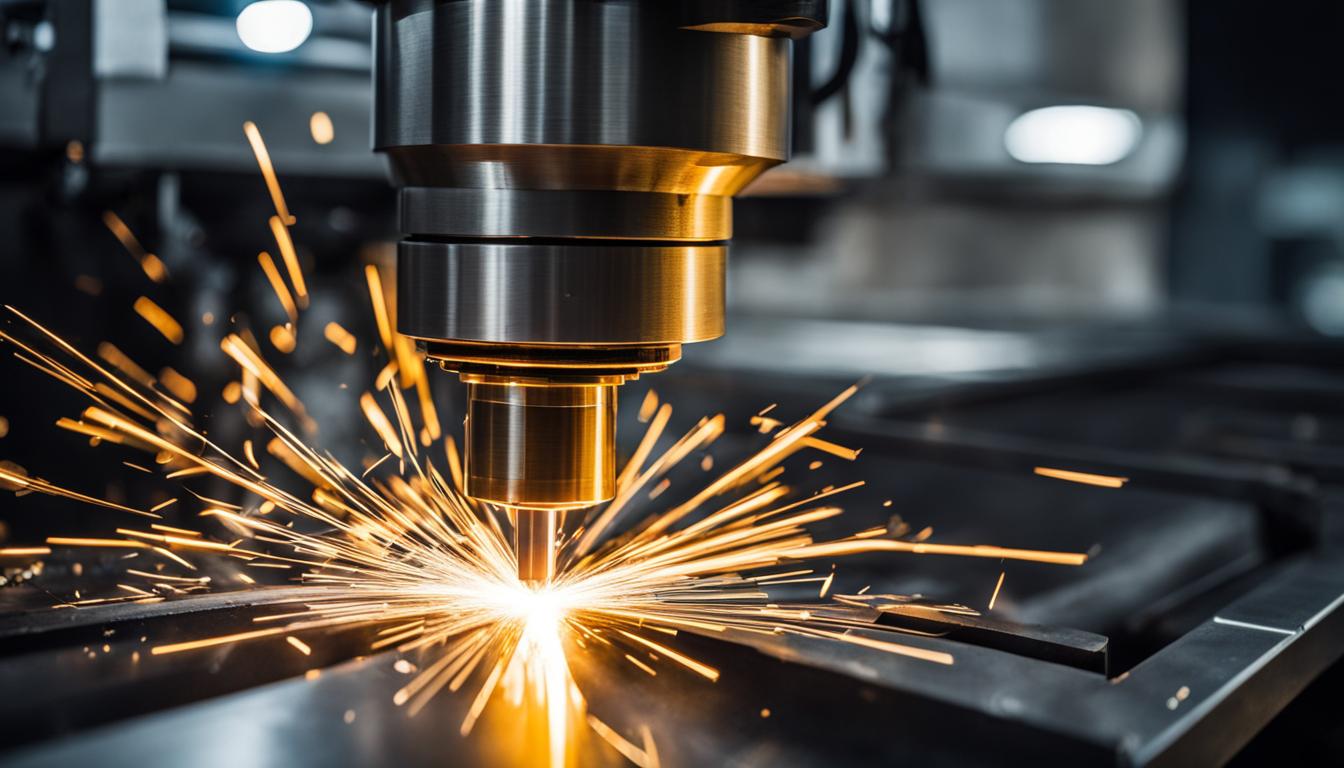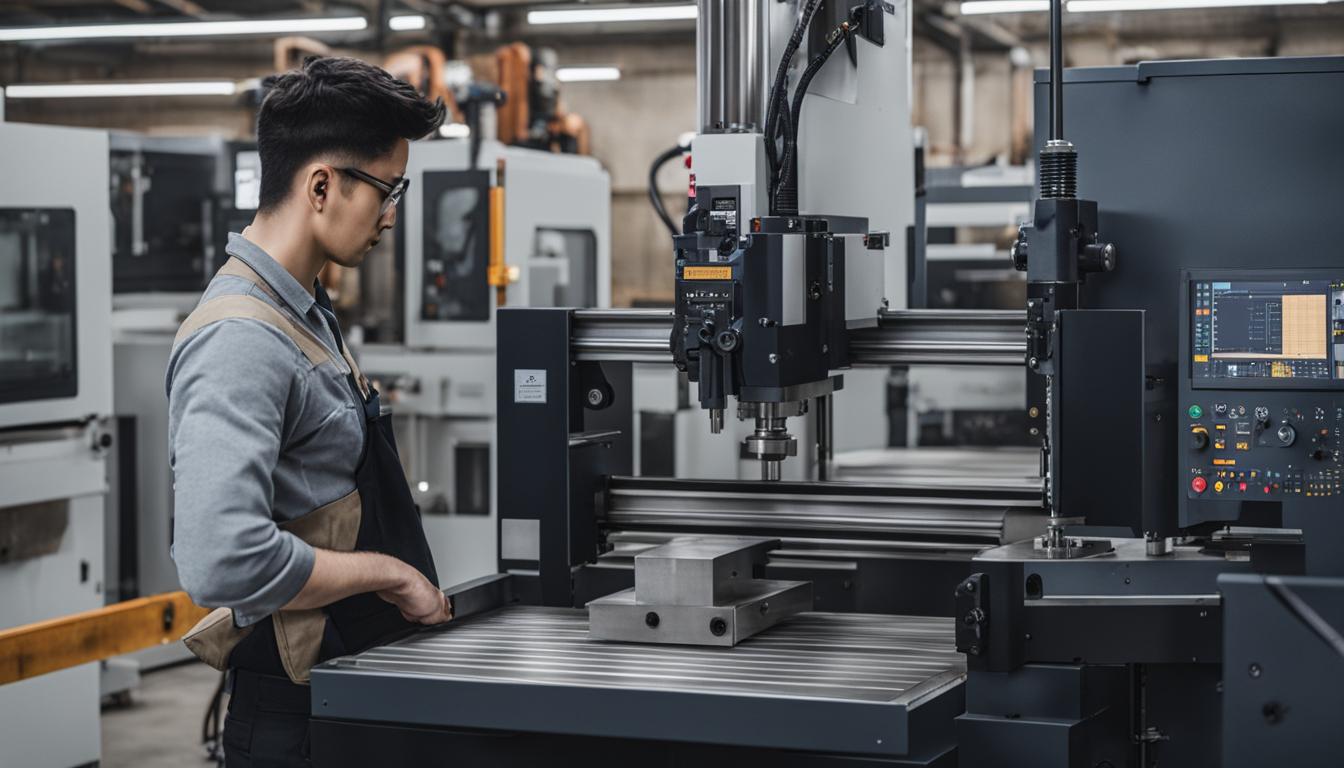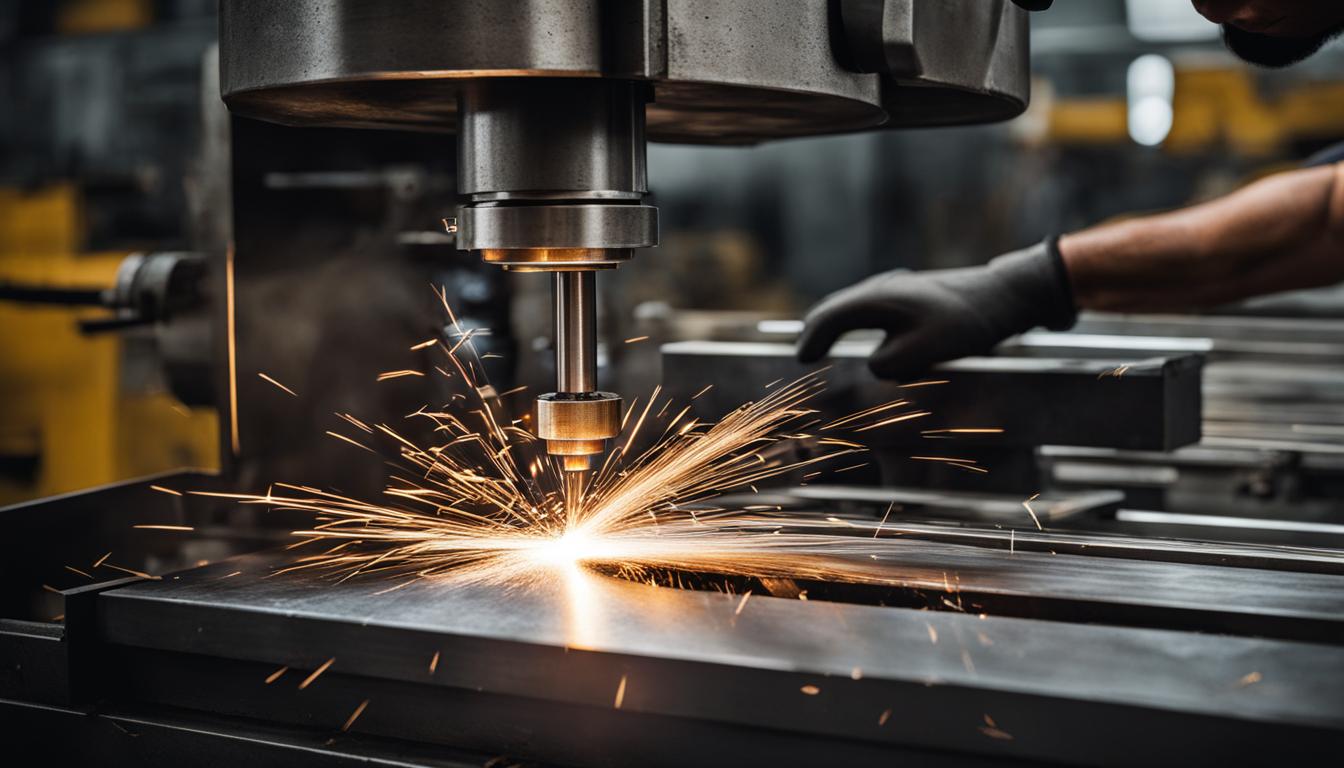The choice between manual and CNC milling machines depends on specific project requirements, production volume, and available resources. Manual milling machines offer greater operator control, lower initial costs, and are ideal for one-off or small batch productions. They excel in situations requiring quick setup changes and are well-suited for prototyping or custom work.
CNC milling machines, on the other hand, provide superior precision, consistency, and efficiency for large-scale production runs. They can handle complex geometries with ease and offer repeatability that manual machines cannot match. CNC mills also reduce human error and can operate continuously, increasing overall productivity. However, they require significant initial investment and specialized programming skills. For businesses dealing with high-volume production or intricate parts, CNC milling machines are generally the better choice.
Small workshops or educational settings may find manual milling machines more appropriate due to their simplicity and lower cost. Ultimately, many manufacturing environments benefit from having both types of machines, leveraging the strengths of each for different tasks and projects.
- Manual milling machines are controlled by human operators, providing cost-effectiveness and shorter turnaround time.
- CNC machines offer precise tolerances, allow for complex shapes, and are ideal for high-volume production.
- Manual milling machines are suitable for simpler projects, prototyping, and low-volume runs.
- CNC machines find applications in industries like consumer electronics, automotive, oil and gas, and medical.
- The choice between manual and CNC milling machines depends on factors such as production volume, complexity of parts, and required tolerances.
Pros and Cons of Manual Milling Machines
Manual milling machines offer various advantages for businesses, particularly those starting out. Here, we will explore the pros and cons of using manual milling machines to help you understand if they are the right choice for your machining needs.
Pros of Manual Milling Machines
1. Cost-effectiveness: Manual milling machines are often less expensive than their CNC counterparts. This affordability makes them an attractive option for small businesses or those on a tight budget.
2. Shorter Turnaround Time: Manual machines do not require programming before operation. This eliminates the need for time-consuming programming tasks, enabling faster project completion.
3. Suitable for Small Projects: Manual milling machines are well-suited for small projects and producing simple metal shapes. Their versatility allows for flexibility in tackling different types of machining tasks.
| Pros | Cons |
|---|---|
| Cost-effective | Limitations in producing complex parts |
| Shorter turnaround time | Require skilled machinists |
| Suitable for small projects | Not ideal for tight tolerances |
Cons of Manual Milling Machines
1. Limitations in Producing Complex Parts: Manual milling machines have limitations when it comes to producing intricate or complex parts. The manual control aspect may restrict the precision and intricacy achievable.
2. Require Skilled Machinists: Operating manual milling machines effectively requires skilled machinists with a solid understanding of the machine’s mechanisms and techniques. This skill set may limit the pool of qualified operators available.
3. Not Ideal for Tight Tolerances: Manual milling machines may not provide the level of precision required for tight tolerances. CNC machines offer more precise control and can achieve tighter tolerances consistently.
While manual milling machines have their advantages, such as affordability and quicker turnaround time, they may not be suitable for every machining need. Understanding their limitations is crucial in making an informed decision. In the next section, we will explore the pros and cons of CNC machines, providing a comprehensive comparison to help you choose the best option for your specific requirements.
Pros and Cons of CNC Machines
In the world of milling machines, CNC (computer numerical control) machines have gained significant popularity due to their numerous advantages. CNC machines offer precise and efficient machining capabilities that surpass those of manual milling machines. However, they also come with a few drawbacks. Let’s explore the pros and cons of CNC machines.
Pros of CNC Machines
There are several advantages to using CNC machines:
- Tighter Tolerances: CNC machines deliver precise, machine-defined tolerances, ensuring consistent and accurate machining of parts.
- Complex Shapes: With CNC machines, it’s easier to machine intricate and complex shapes that would be challenging or time-consuming with manual milling machines.
- Efficiency: CNC machines require minimal human oversight and can operate unattended for extended periods of time, maximizing productivity.
- High-Volume Production: The automated nature of CNC machines makes them ideal for high-volume production, allowing businesses to achieve greater output in less time.
- Higher Quality Parts: CNC machines produce higher quality parts, resulting in improved durability and functionality.
Cons of CNC Machines
Despite their advantages, CNC machines also have a few disadvantages that should be considered:
- Higher Cost: CNC machines tend to be more expensive than manual milling machines, making them a significant investment for businesses.
- Programming Skills Required: Operating CNC machines requires programming skills to manage the machine’s instructions and create efficient machining programs.
Overall, CNC machines offer numerous benefits such as precise machining, complex shape capabilities, and increased productivity. However, they come with a higher price tag and require specialized skills for programming and operation.

Stay tuned for the next section, where we’ll dive into the various applications of manual milling machines.
Applications of Manual Milling Machines
Manual milling machines play a crucial role in a variety of machining applications. While CNC machines have become more popular, there are still instances where manual milling machines are the preferred choice. These machines offer versatility and are often utilized for low-volume runs, repairs, and smaller projects.
One of the main applications of manual milling machines is for low-volume runs or repairs to singular parts. In such cases, the time required for programming a CNC machine may outweigh the actual machining time. Manual machines provide a cost-effective and efficient solution for these scenarios.
Manual milling machines are also valuable for producing simple metal shapes. They allow operators to precisely control the cutter and workpiece, making them ideal for shaping basic components. Industries such as prototyping often rely on manual milling machines for smaller projects.
However, it’s important to note that manual milling machines are not suitable for producing complex parts or high-volume batches. Their limitations in terms of precision and automation make them less efficient for such applications.
| Advantages | Limitations |
|---|---|
|
|
Applications of CNC Machines
CNC machines have revolutionized the manufacturing industry with their versatility and precision. They find extensive applications across various sectors, delivering high-quality and efficient results. Let’s explore some of the key industries that heavily rely on CNC machines:
1. Consumer Electronics Industry
The consumer electronics industry greatly benefits from CNC machines for the production of components such as housings, fixtures, and printed circuit boards (PCBs). CNC machines ensure precise manufacturing, allowing electronic devices to be assembled with accuracy and consistency.
2. Automotive Industry
In the automotive industry, CNC machines play an integral role in the production of custom parts and prototyping. These machines enable the manufacturing of complex components, ensuring high-quality standards while meeting tight tolerances. From engine components to intricate interior features, CNC machines are essential for automotive manufacturing.
3. Oil and Gas Industry
The oil and gas industry relies on CNC machines for the production of critical components like rods, pins, and pistons. CNC machining ensures the creation of durable and precise parts that can withstand the challenging operating conditions in the oil and gas sectors.
4. Medical Industry
In the medical industry, CNC machines are indispensable for the production of high-precision parts and complex surfaces. These machines enable the manufacturing of surgical instruments, implantable devices, and custom medical components. The accuracy and reliability of CNC machines are crucial for ensuring patient safety.
5. Other Industries
Besides the aforementioned industries, CNC machines find applications in various other sectors including aerospace, defense, electronics, woodworking, and more. Their versatility and ability to produce intricate and precise parts make them highly sought after across multiple industries.
Overall, CNC machines offer immense potential and flexibility in manufacturing, making them an invaluable asset for businesses across a wide range of industries.
| Industry | Applications |
|---|---|
| Consumer Electronics | Manufacturing housings, fixtures, PCBs |
| Automotive | Custom parts, prototyping |
| Oil and Gas | Rods, pins, pistons |
| Medical | High-precision parts, complex surfaces |
| Others | Aerospace, defense, electronics, woodworking, etc. |
Choosing Between Manual Milling Machines and CNC Machines
When it comes to selecting the right milling machine for your business, there are two primary options to consider: manual milling machines and CNC machines. The choice between these two methods depends on several factors, including cost effectiveness, production volume, and the desired level of precision. Let’s explore the advantages and considerations of each option to help you make an informed decision.
Manual Milling Machines
Manual milling machines are a traditional and cost-effective option for machining. They are operated by skilled machinists who manually control the cutting process. These machines offer certain advantages, such as:
- Lower Initial Investment: Manual milling machines are generally more affordable compared to their CNC counterparts, making them a suitable choice for businesses with limited budgets.
- Quick Turnaround: As manual machines do not require programming, they allow for faster production turnaround times, especially for smaller projects.
- Flexibility: These machines can easily handle simple metal shapes and are often used for low-volume runs or repairs of singular parts.
However, it’s important to consider the limitations of manual milling machines:
- Complexity and Precision: Manual machines have limitations when it comes to producing complex parts and achieving tight tolerances, requiring significant skill and experience from the operator.
- Labor Intensive: The manual operation of these machines requires skilled machinists, which can add to production costs and increase the likelihood of human error.

CNC Machines
CNC machines, or computer numerical control machines, offer advanced automation and precision for machining tasks. Here are the advantages of using CNC machines:
- Precision and Complexity: CNC machines excel at producing high-quality parts with tight tolerances, making them ideal for complex shapes and intricate designs.
- Efficiency and Consistency: These machines require minimal human oversight and can run unattended for long periods, resulting in increased productivity and consistent quality.
- High-Volume Production: CNC machines are well-suited for high-volume production runs, delivering consistent, reliable output.
However, there are some considerations when opting for CNC machines:
- Higher Initial Investment: CNC machines generally have higher upfront costs compared to manual milling machines.
- Programming and Training: Operating CNC machines requires programming skills, which may necessitate additional training and resources.
Each business must evaluate its unique needs and priorities when choosing between manual milling machines and CNC machines. Consider factors such as the cost, production volume, complexity of parts, and desired precision. By carefully weighing these factors, you can make an informed decision that aligns with your business goals and machining requirements.
| Manual Milling Machines | CNC Machines |
|---|---|
| Lower upfront cost | Higher upfront cost |
| Quick turnaround for smaller projects | Efficient for high-volume production |
| Flexibility for simple metal shapes | Precision for complex shapes and tight tolerances |
| Requires skilled machinists | Requires programming skills |
Used CNC Milling Machines
If you’re considering investing in CNC technology for your business, used CNC milling machines can be a cost-effective option. These machines offer the same capabilities as new ones but at a lower price point, making them an attractive choice for businesses on a budget.
When purchasing used CNC milling machines, it’s important to consider several factors to ensure a smart investment. Firstly, evaluate the condition of the machine to ensure it is in good working order and free from any major issues. It’s also essential to review the maintenance history of the machine to get an idea of its performance and longevity.
Additionally, researching the reputation of the seller is crucial. Look for trusted dealers or sellers who have a track record of providing reliable equipment. This will help ensure that you’re getting a high-quality machine from a reputable source.
Finally, before finalizing a purchase, it’s advisable to have a qualified technician inspect the machine. This will help identify any potential hidden issues and provide you with peace of mind knowing that the machine is in optimal condition.
| Key Considerations When Purchasing Used CNC Milling Machines |
|---|
| Machine Condition |
| Proper Maintenance History |
| Reputation of the Seller |
| Professional Inspection |
Mini CNC Milling Machines
Mini CNC milling machines are compact and portable machines that are perfect for small-scale projects and limited workspaces. These machines offer the same capabilities as larger CNC machines but in a smaller size, making them a versatile choice for various applications. Mini CNC milling machines are widely used by hobbyists, educators, and small businesses for prototyping, customization, and small-scale production.
When choosing a mini CNC milling machine, there are several factors to consider:
- Size: Mini CNC milling machines come in different sizes, so it’s essential to choose one that fits your workspace and requirements.
- Power: Consider the power capabilities of the machine to ensure it can handle the materials and projects you plan to work on.
- Features: Look for features like automatic tool changers, high-speed spindles, and precision controls to enhance efficiency and productivity.
By selecting the right mini CNC milling machine, you can achieve accurate and precise results in your smaller-scale projects, all while maximizing your available space.
Types of CNC Milling Machines
When it comes to CNC milling machines, there are a variety of types to choose from, each specifically designed for different applications. Some common types include vertical milling machines, horizontal milling machines, and gantry milling machines.
Vertical milling machines are the most commonly used and versatile type of CNC milling machine. They are capable of milling in multiple directions, allowing for greater flexibility and precision in the machining process.
Horizontal milling machines, on the other hand, are ideal for heavy-duty machining and are typically used for larger workpieces. These machines provide excellent stability and can handle large-scale projects with ease.
Gantry milling machines are specifically designed for machining large components with high precision. They feature a bridge-like structure that allows for the machining head to move along the X, Y, and Z axes, providing enhanced accuracy and efficiency.
When selecting a CNC milling machine, it is essential to consider the specific machining requirements of your project and the available workspace. Understanding the capabilities and limitations of each type will help you make an informed decision and choose the right CNC milling machine for your needs.
